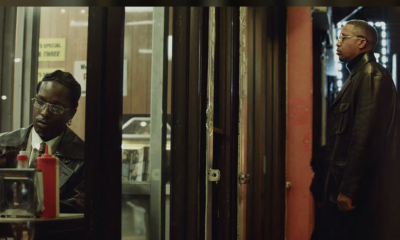Copyright
Limp Bizkit’s $200 Million Lawsuit Against Universal Music Group Moves Forward
Limp Bizkit’s high-stakes legal fight against Universal Music Group (UMG) is set to move forward, as a federal judge has ruled that key claims, particularly those involving copyright infringement, can proceed in court. The band accuses UMG of deliberately concealing as much as $200 million in royalties, a case that could have major implications for artist-label relationships across the industry.
Judge Percy Anderson, presiding in federal court, issued the ruling on March 17. While he ordered frontman Fred Durst to refile most of his contractual claims in either California or New York state courts, he denied UMG’s motion to dismiss Limp Bizkit’s copyright-related allegations. This paves the way for what could be a lengthy legal showdown.
A Complex Legal Landscape
At the heart of the dispute is the band’s attempt to rescind their long-standing contracts with UMG—a move that could return ownership of their copyrights back to them. While the judge had initially rejected this bid in January, his latest ruling reopens the question and sends parts of the case to state courts for further review.
The decision separates the copyright claims from the contractual dispute, recognising that they involve “facts and law that are distinct,” according to the court documents. UMG is to formally respond to the allegations of copyright infringement.
Accusations of Fraud and Royalty Concealment
Limp Bizkit alleges that UMG operated a royalty payment system designed specifically to obscure the amounts owed to artists. According to the complaint, the label created “software and systems” that made it difficult, if not impossible, for performers to track and verify their royalties. The band says this scheme helped UMG retain large sums that rightfully belonged to them.
UMG has denied these claims outright, calling them “fiction” in a motion to dismiss filed last November.
Fred Durst Points to Streaming Boom
According to the lawsuit, Fred Durst was informed by Flip Records—the band’s original label—that it had been receiving substantial payouts as a result of renewed interest in Limp Bizkit, driven in part by monthly streaming numbers in the millions on platforms like Spotify. While the band received a payment of $1.03 million, and Fred Durst’s Flawless Records received $2.3 million, their legal team argues that these payments fall far short of what is truly owed.
They also suggest that Limp Bizkit is not alone in being shortchanged. The band and Fred Durst believes that UMG’s model may have affected “hundreds of other artists” over the years.
Drake’s Legal Team Fires Back at UMG, Accuses Label of Exploiting Artists
Industry-Wide Implications
Limp Bizkit, known for early 2000s hits such as “Break Stuff” and “My Way,” may be embarking on one of the most high-profile artist lawsuits in recent memory. If successful, the case could open the floodgates for other legacy acts to challenge long-standing label practices in the digital era.
With millions potentially on the line and a major music label under scrutiny, all eyes will now turn to the upcoming hearings as this explosive case develops.
View this post on Instagram








































Pingback: Forget Olivia Rodrigo—Limp Bizkit's Fred Durst Sexiest Voice in UK